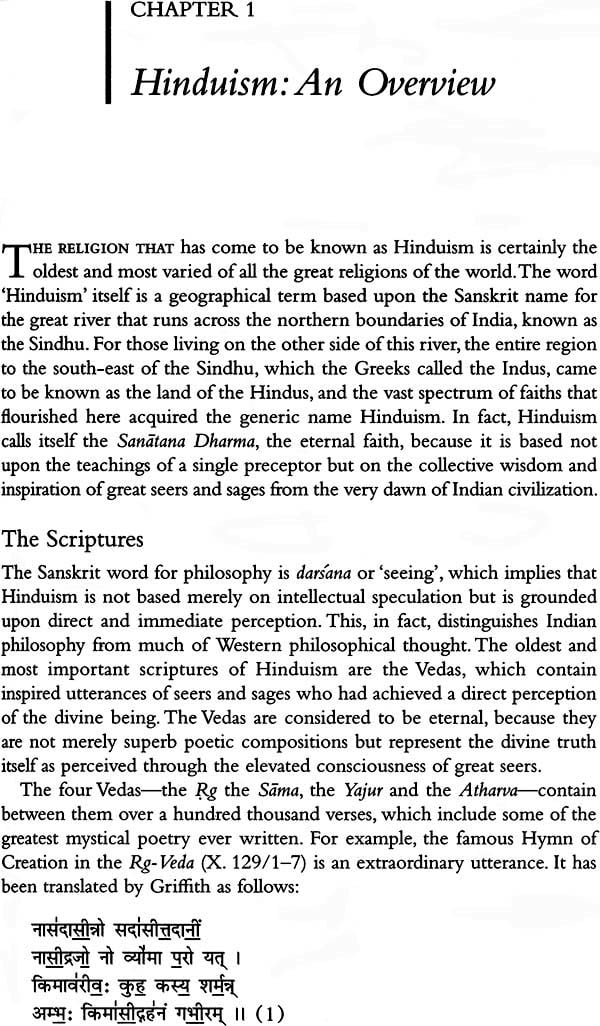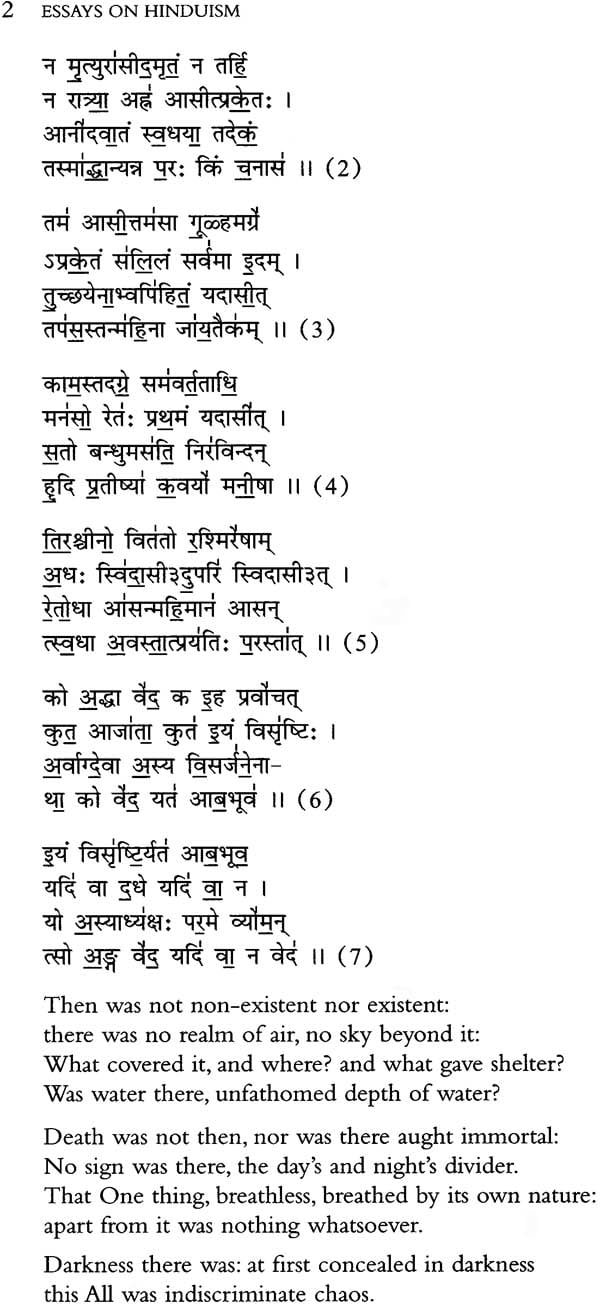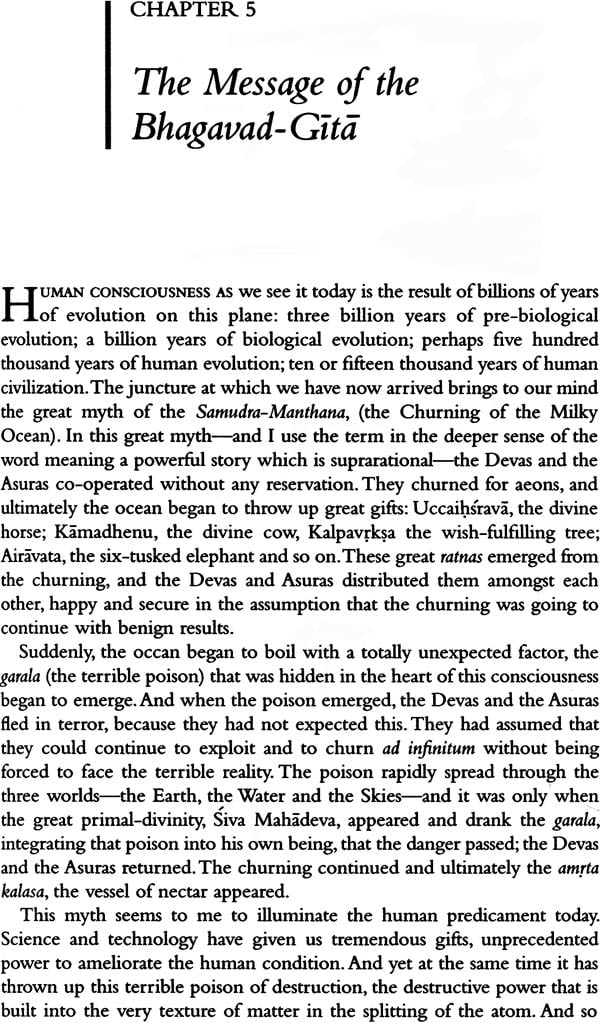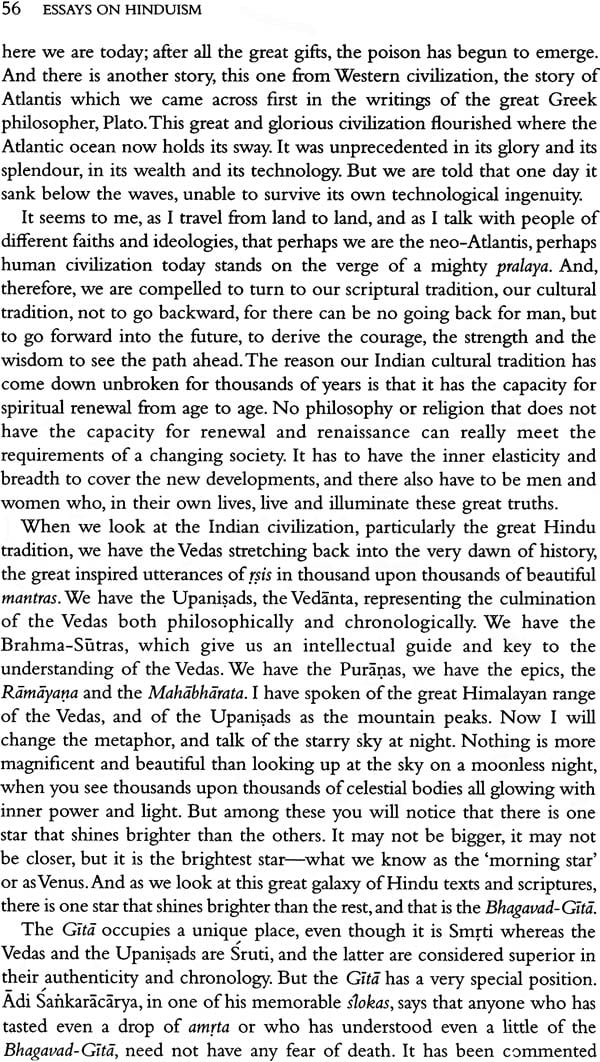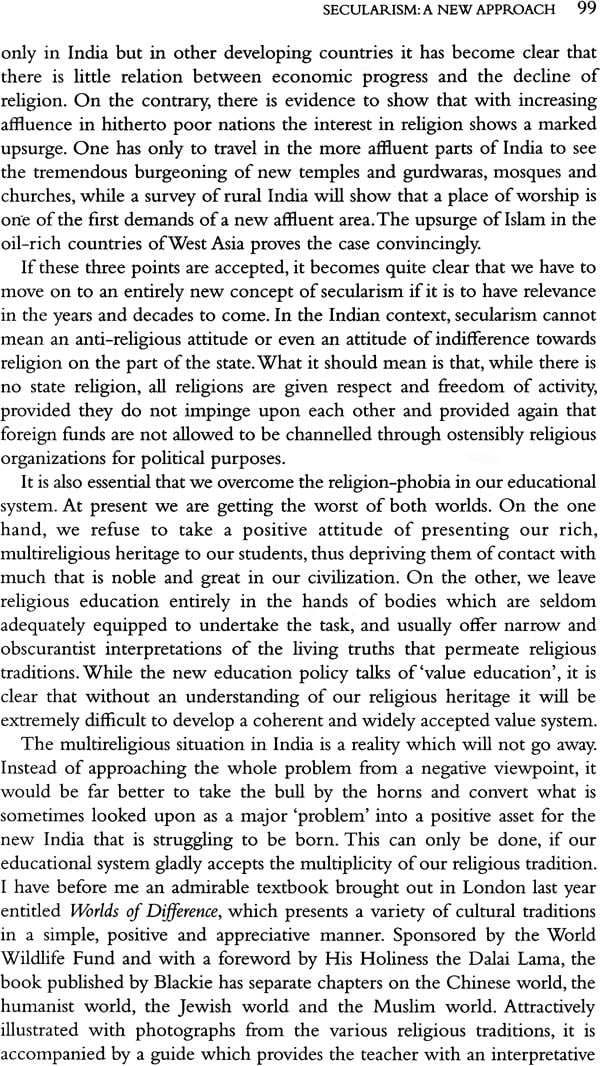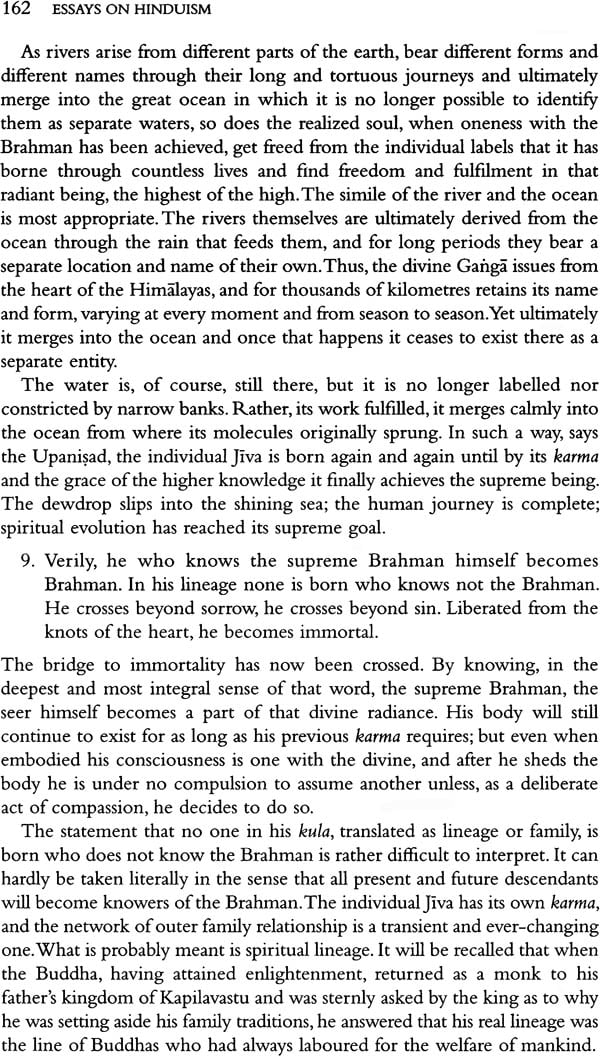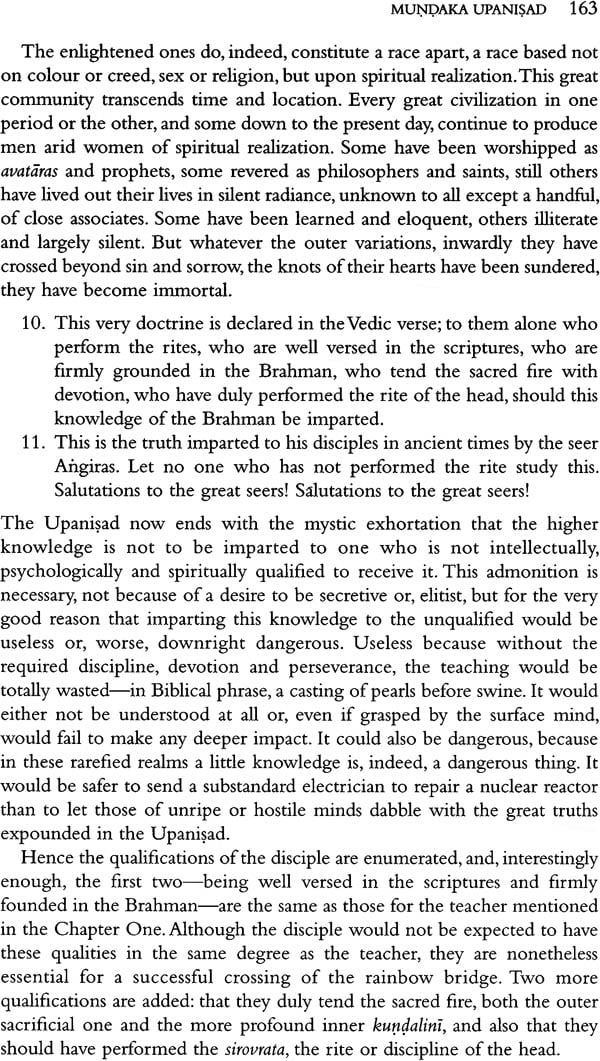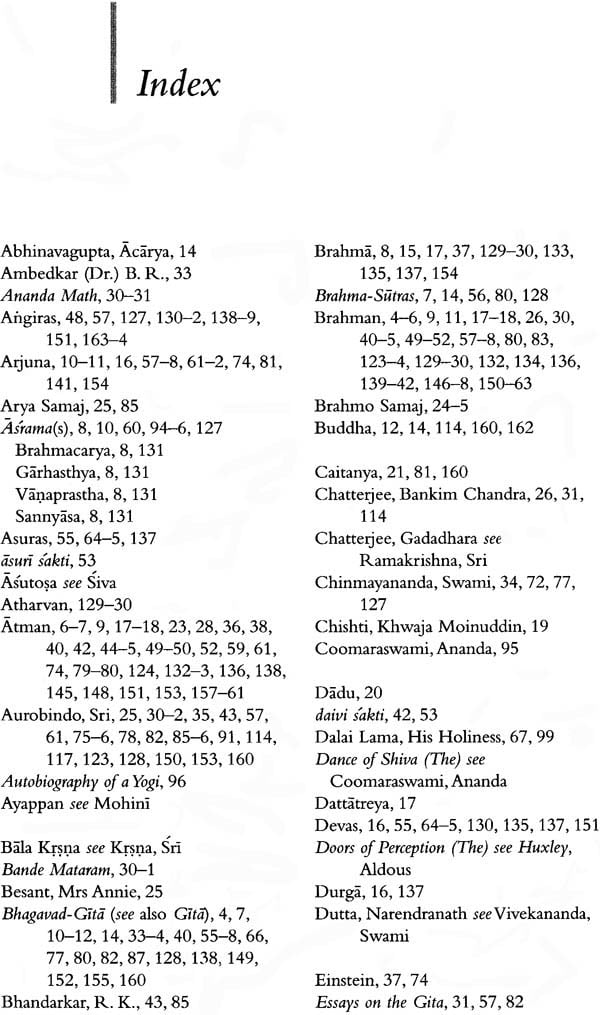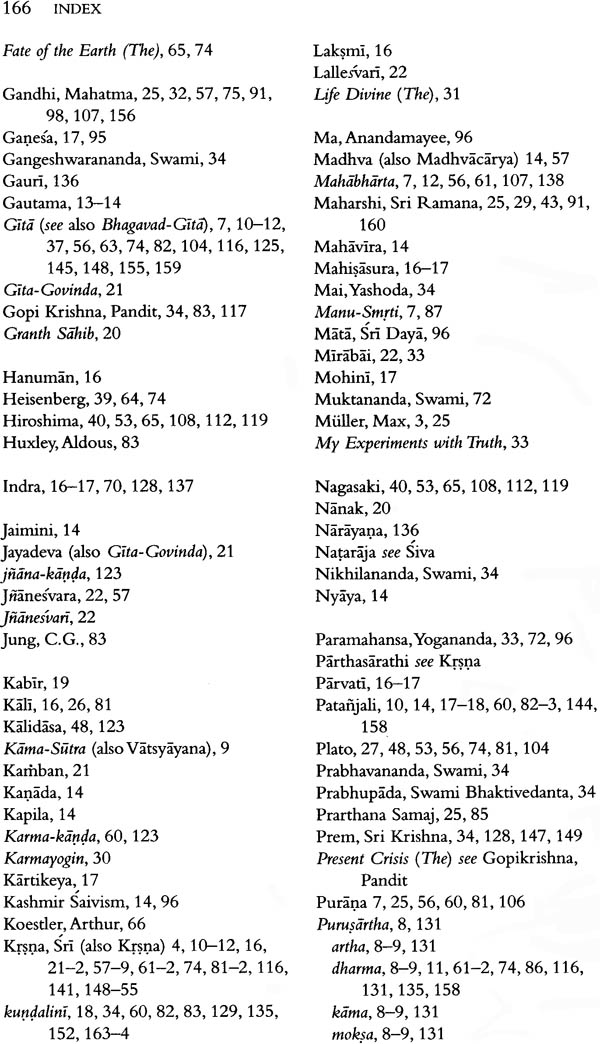
Essays on Hinduism
Book Specification
| Item Code: | NAL971 |
| Author: | Karan Singh |
| Publisher: | Primus Books, Delhi |
| Language: | English |
| Edition: | 2014 |
| ISBN: | 9789384082017 |
| Pages: | 176 |
| Cover: | Paperback |
| Other Details | 9.5 inch X 6.0 inch |
| Weight | 290 gm |
Book Description
In this collection of essays the author discusses the basics of Hinduism. Outlining the message of the Bhagavas-Gita and the Upanisads, he argues that Hinduism is not a cult, nor a bunch of dogmas, but a religion of the highest order that speaks of an immanent and transcendental god. It also offers a philosophy of life that cuts across ethnic and geographic barriers between men. According to him, the essentials of Hindu religio-philosophic teaching are pervaded by the ideal of universalism and love for humanity.
The author drives home the relevance of Hindu universalism to an age in which nations are armed for mutual annihilation. He maintains that successful application of the religio-philosophic teaching of Hindu seers will help humankind to overcome the worst crisis facing it in this nuclear age, and will lead to restructuring the world on the all-embracing principle of freedom and equity. The text is followed by the author’s lucid translation and commentary on Mundaka Upanisad. The book is the revised edition of his earlier Hinduism.
Karan Singh was born heir-apparent to the Maharaja of Jammu & Kashmir. In 1949, at the age of 18, he was appointed Regent and was Head of State thereafter for 18 years as Regent, elected Sadar-j-Riyasat and as Governor. In 1967, he was inducted into the Union Cabinet by Mrs Indira Gandhi. He held Cabinet portfolios of Tourism & Civil Aviation, Health & Family Planning and Education & Culture. His appointment as India’s Ambassador to this United States was warmly welcomed by both countries.
He was awarded a Ph.D. by the University of Delhi for his thesis on the Political Thought of Sri Aurobindo. He has been Chancellor of Jammu & Kashmir University and Jawaharlal Nehru University, President of the Author’s Guild of India, the Commonwealth Society of India, People’s Commission on Environment & Development: Chairman of the Temple of Understanding, a global interfaith organization; Member of the Club of Rome, the Club of Budapest, and the Green Cross International. He was a Four-time Member of the Lok Sabha and since 1996 is a Member of the Rajya Sabha, the UPPER House of Parliament, Chairmen, Governing Board of the Auroville Foundation, Chancellor of the Benaras Hindu University and President of the Indian Council for Cultural Relations, having Cabinet rank.
Karan Singh has written several books and has lectured on political science, philosophy, education, religion and culture, in India and abroad. He is recognized as one of India’s outstanding thinkers and leaders.
Over the Last few years I have had occasion to write and speak fairly extensively on various aspects of Hinduism, both in India and abroad, and these pieces have from time to time been published in various books and journals. Several friends have suggested that in view of the growing interest in Hinduism, not only in India but worldwide, these should be made available in a collected form to a wider reading public. In many of the universities I visited in the United States there was a substantial interest in such a book.
I have slightly edited and added some new articles for this revised edition, although the reader will inevitably will inevitably come acrose a certain amount of repetition. In particular, I have constantly stressed what a consider to be the broad, universal aspects of Hinduism which are multi-faceted that all one can hope to do is to explore some of its more significant elements, so that the reader can gain a glimpse into its beauty and power. If I have helped in doing this even to a small degree, it will give me tremendous satisfaction.
It is my first conviction that mankind today is transiting into an entirely new phase of civilization, which may be called the global society, a transition as important, if not more so, as the earlier ones from nomadic to agricultural, from agricultural to industrial and from industrial to post-industrial society. Besides, with the rate of change having immensely accelerated due to the technological explosion, major transformations, which in an earlier age would have taken centuries. Are now compressed into a few decades. This gives human consciousness insufficient time to adjust to the new situation; hence the dangerous lag we witness today between the emergence of a global society an acceptance by the vast mass of humanity.
While science and technology are central to this entire process, the great religious traditions of mankind also have an important role to play because of their impact on the minds and heart of billions of human beings. My interest in Hinduism, therefore, floes not only from the fact that I am a Hindu but also because, as a global citizen, I am convinced that the universal aspects of Hinduism-particularly the Vedanta-can provide an invaluable input into the emerging global consciousness. It is my hope that the essays the follow, which include a translation and commentary on the Mundaka Upanisad, one of the seminal texts of the Vedanta, will be of some value not only to scholars but to lay people throughout the world who are interested in this great religious tradition. The last edition of this book was brought out by Ratna Sagar in 1990. In the many years that have elapsed since then I have found no reason to change the articles, except updating the names of those guru who have passed away and adding some new ones. I have included an article called ‘Keep the Light Shining’ which points out that fundamentalist Hinduism would be a travesty of the great Vedantic tradition.
| To Lord Siva | vi | |
| Preface | ix | |
| 1 | Hinduism: An Overview | 1 |
| 2 | Vedanta in the Nulear Age | 39 |
| 3 | Keep the Light Shining | 43 |
| 4 | The Message of the Upanisads | 57 |
| 5 | The Messag of the Bhagavad-Gita | 55 |
| 6 | The Insight of the Mytics | 64 |
| 7 | Hinduism and Humanity | 72 |
| 8 | Yoga: An Integrated Philosophy of Life | 80 |
| 9 | Moral and Spiritual Values in New India | 85 |
| 10 | Religion Today | 90 |
| 11 | American Gurus | 94 |
| 12 | Secularism: A New Approach | 98 |
| 13 | Restructuring Education | 101 |
| 14 | Declaration on Nature: The Hindu Viewpoint | 105 |
| 15 | The Ethics of Conservation | 108 |
| 16 | Transition to Global Coniciousness | 112 |
| 17 | The Need for Human Unity | 116 |
| 18 | The Way to Peace | 119 |
| Appendix: Mundaka Upanisad | 123 | |
| Index | 165 |
